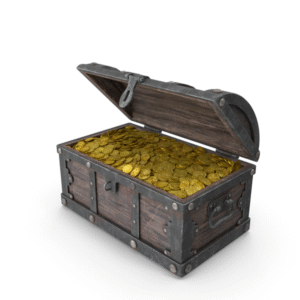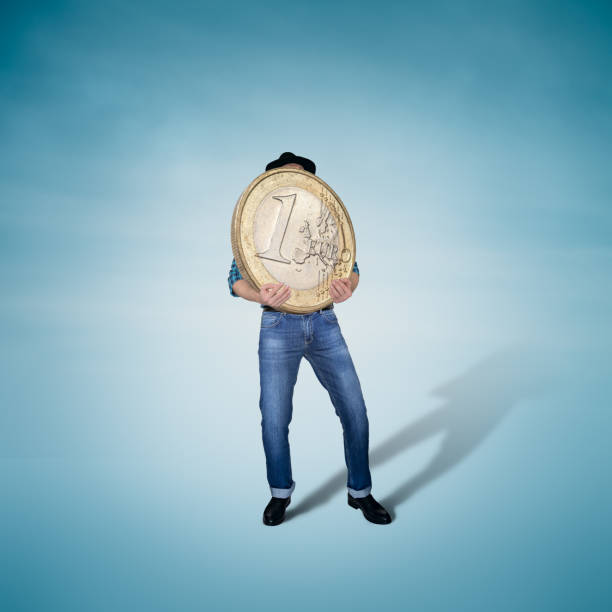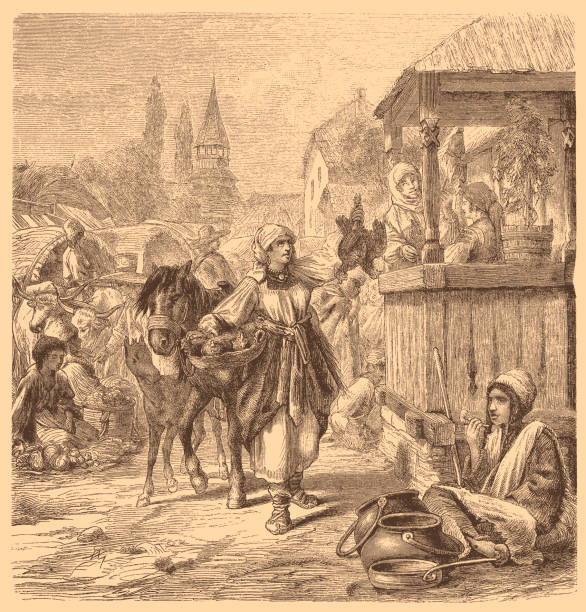Gold is a pain in the ass, Part 1
By Chris Kluge

Gold is a pain in the ass, Part 1
So, your heroes have finally overcome all those incredible odds, crossed the swamps, climbed the mountain, faced the horrors of the dungeon, and slain the dragon and are doing a little dance of joy as they lay eyes on the chest full of gold. Generic, I know, but bear with me.
This is not the time for betrayal, nor is it the time for dancing. This is the hero’s darkest hour. For now, they have to work out how to get this fortune home.
Sorry to those good folks in the United States, Liberia, and Myanmar; I’m going to be using metric units in this article, even if Archer was right and you usually don’t think of the other two as having their shit together.
Gold is ridiculously heavy.
By heavy, I mean dense. Here are three common examples. A quick check with your favourite search engine will reveal the densities of whatever you’re after. I’m using these three because they’re helpful to us today.
- Water: Density 1. One litre of water weighs 1 kilogram. A thousand litres of water would weigh a metric ton.
- Iron: Density 7.87. One litre of iron weighs 7.87 kilos.
- Gold: Density 19.32. One litre of gold weighs 19.32 kilos.
So, just how big is this treasure chest?
The plastic tub I put my dirty washing in is 600mm long, 400mm wide and 300mm deep. I chose this because it’s a convenient size for me to lift by myself, and it’s what I’d consider to be about the size of a medium-sized chest.
Time for a simple calculation. Let’s go with cubic metres, so I simply divide all those millimetres by a thousand to get metres, and then I multiply the lot together to get cubic metres. 0.6 x 0.4 x 0.3 = 0.072 cubic metres in volume. Or 72 litres. Go, the metric system.
I wonder how many gallons that is, if you measured in inches, but only out of spite.
So, if I fill that tub with water, it’s going to weigh 72 kilos. I’m getting on, and I don’t think I could lift that anymore. Aw, who am I kidding? I’d have struggled to lift that on my best day.
What if it were filled with iron? 0.072 x 7870 kilos = 566 kilos. Oh dear. I sure hope this is a big party with lots of folks with great strength and constitution stats.
But wait. It’s full of gold. Stop dancing, you fools, we have a real problem here. 0.072 x 19320 = 1391 kilos in a tub I wedge onto my hip when I’m opening a door on the way to the washing machine.
Even if the gold is in coins, and some of the volume of that chest is taken up with air gaps between them, this thing is going to weigh well over a ton, and that chest better be bloody well built, preferably with slots for forklift tynes built in.
Nope: Unless these folks brought a team of draft horses with them, they’re screwed.
If you’re a thief searching a mansion for a chest like this: hint, it’s probably going to be on the ground floor, or if they have one, in the basement. Either that, or it’s a damn sturdy building. We’re dealing with 1,400 kg on an area the size of a pillow here, after all.
Now, you begin to see the problem, and with gold, this is only the beginning for the writer who deals with the stuff.
The reason I wrote this article is that the very first review I did for a Litopia writer had a “large gold cauldron” as the target for a goblin thief.
“Double double, toil and trouble”, I thought to myself with glee, as I pictured three witches standing around their large cauldron intoning the state of the mind of Macbeth.
Wait a minute. Aren’t cast-iron cauldrons heavy? And if they are, then gold cauldrons must be very heavy, as gold is 19.32 divided by 7.87 = 2.45 times heavier than iron.
I looked it up. A large iron cauldron weighs as much as 50kg. So a gold one that size would weigh as much as 120kg. You’d have to be a competition-winning power lifter to make off with something like that without a pallet jack.
No problem. Maybe it’s not a large cauldron, it’s a medium-sized pot. Find out how much a cast iron one of those weighs, multiply that by 2.45, and you have an item that weighs at least six kilos. Later, the author would reveal that the gold pot he had in mind would actually weigh nearly 8 kilos.
Go put eight litres of water into a bucket and try “hopping off a stool” with it, as the thief did. Unless you’re an athlete with knees far better than mine, have fun at the physiotherapist.
It got worse: the thief was caught in the act, and beaned the owner of the large cauldron, or possibly medium-sized pot, in the head with it, before leaping out of a window and running away with the loot.
It was then that my review became a scathing lesson in the density of gold, for I was far from happy.
Gold is a pain in the ass, is what I’m getting at here. That, and I need to work on my anger issues. Er, sorry about that, Jake.
There was a time when, because it didn’t appear in its elemental form in nature and before electricity, it was a pain to purify, aluminium (yes, with the second I) was worth more than gold.
If you need something with a density of just 2.7 that is rarer than rocking horse shit as a valuable means of exchange in your fantasy world, pick aluminium.
0.072 x 2700 = 194 kg. Not great, but seven times better than bloody gold.
With a density of 21.45, avoid platinum.
Gold is a pain in the ass, Part 3 and summary.
Size matters, and with gold coins, smaller is better.



I don’t write fantasy and have never had to ponder the practicalities of gold, but I very much appreciate plausibility in fiction of any genre, so this is a useful lesson, I think. It reminds me of the ‘joke’ question our maths teacher used to ask: Which weighs more, a… Read more »
I must remember this if I ever rob a bank. The getaway will be much quicker with a sack of paper money rather than a sack of gold.
In part three, I point out exactly this. In $100 notes, a million bucks weighs 10kg. 10kg of gold (even at our current bubble prices) is only worth $600 000. Even at $1000 per small coin, 10kg is worth just $415 000.
Very pleasing to my inner geek!